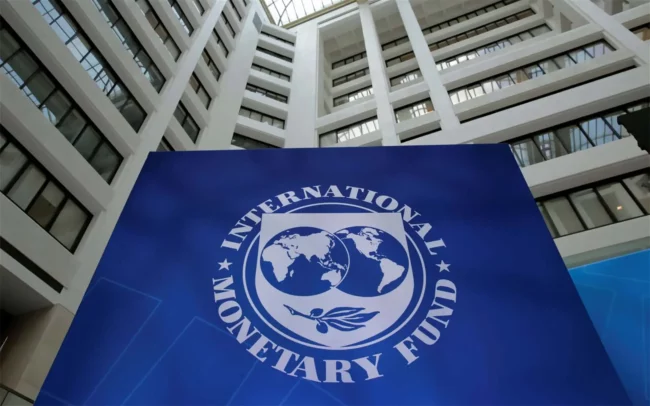The International Monetary Fund (IMF) has highlighted the importance of reforms in Nigeria, which it said will enhance the business environment and improve security.
It added that it will also enhance the implementation of key governance measures, develop human capital, boost agricultural productivity, and build climate resilience.
The IMF added that these reforms are crucial to boost investor confidence, unlock Nigeria’s growth potential and diversify the economy.
This is contained in the IMF 2024 Article IV consultation with Nigeria that was released on Thursday.
“Over the last decade, Nigeria’s growth has just about kept up with population dynamics. Poverty has increased, and food insecurity is rising. The government is constrained by low domestic revenue mobilization. Governance problems remain pervasive. The external environment – cost of financing – remains difficult, high oil and gas prices notwithstanding. The new administration has set out on an ambitious reform path to restore macroeconomic stability and develop a pro-growth reform agenda”, IMF said.
The IMF welcomed the bold reforms implemented by the new administration of President Bola Tinubu and commended the authorities’ focus on revenue mobilization, governance, social safety nets, and upgrading policy frameworks in the face of Nigeria’s significant economic and social challenges.
In view of the downside risks, the IMF Directors stressed the importance of steadfast, well-sequenced, and well-communicated reforms to restore macroeconomic stability, reduce poverty, support social cohesion, and pave the way for faster, inclusive, and resilient growth.
The Directors commended the authorities’ actions to rein in inflation and restore market confidence.
ALSO READ: NACA to strengthen multisectoral approach in fight against HIV
They stressed the importance of keeping a tight monetary policy stance to put inflation on a downward path, maintaining exchange rate flexibility, and building reserves.
Also, the Directors welcomed the removal of foreign exchange market distortions and encouraged the authorities to continue improving the functioning of the FX market, including by adopting a well-designed FX intervention framework.
Some Directors also noted that carefully and sequentially phasing out capital flow management measures when warranted would be important.
They supported the authorities’ intentions to shift to an inflation-targeting regime and recommended strengthening central bank independence and communication to ensure a successful transition.
The IMF recommended caution regarding amendments to the Central Bank of Nigeria (CBN) Act that might weaken the central bank’s autonomy.
The Directors encouraged further progress in implementing the outstanding recommendations from the 2021 safeguards
assessment.
Directors commended the authorities for restarting the cash transfer programme and emphasized the urgency of scaling it up to mitigate acute food insecurity.
They welcomed the authorities’ work on a comprehensive revenue mobilization strategy including boosting tax enforcement and broadening the tax base.
They underscored that mobilizing revenue and reprioritizing expenditure, including phasing out costly and regressive energy subsidies, are critical to creating fiscal space for development spending and strengthening social protection, while maintaining debt sustainability.
The IMF Directors appreciated the authorities’ commitment to discontinue deficit monetization and positively noted progress in macroeconomic policy
coordination.
The Directors emphasised the importance of close monitoring of financial sector risks.
They supported the increase in the minimum capital for banks and urged the CBN to unwind the regulatory forbearance introduced during the pandemic.
Directors acknowledged the recent improvements in the AML/CFT framework and called for sustained action to exit the FATF grey list.
They supported the authorities’ efforts to foster financial inclusion and deepen the capital market.
NIGERIAN TRIBUNE
